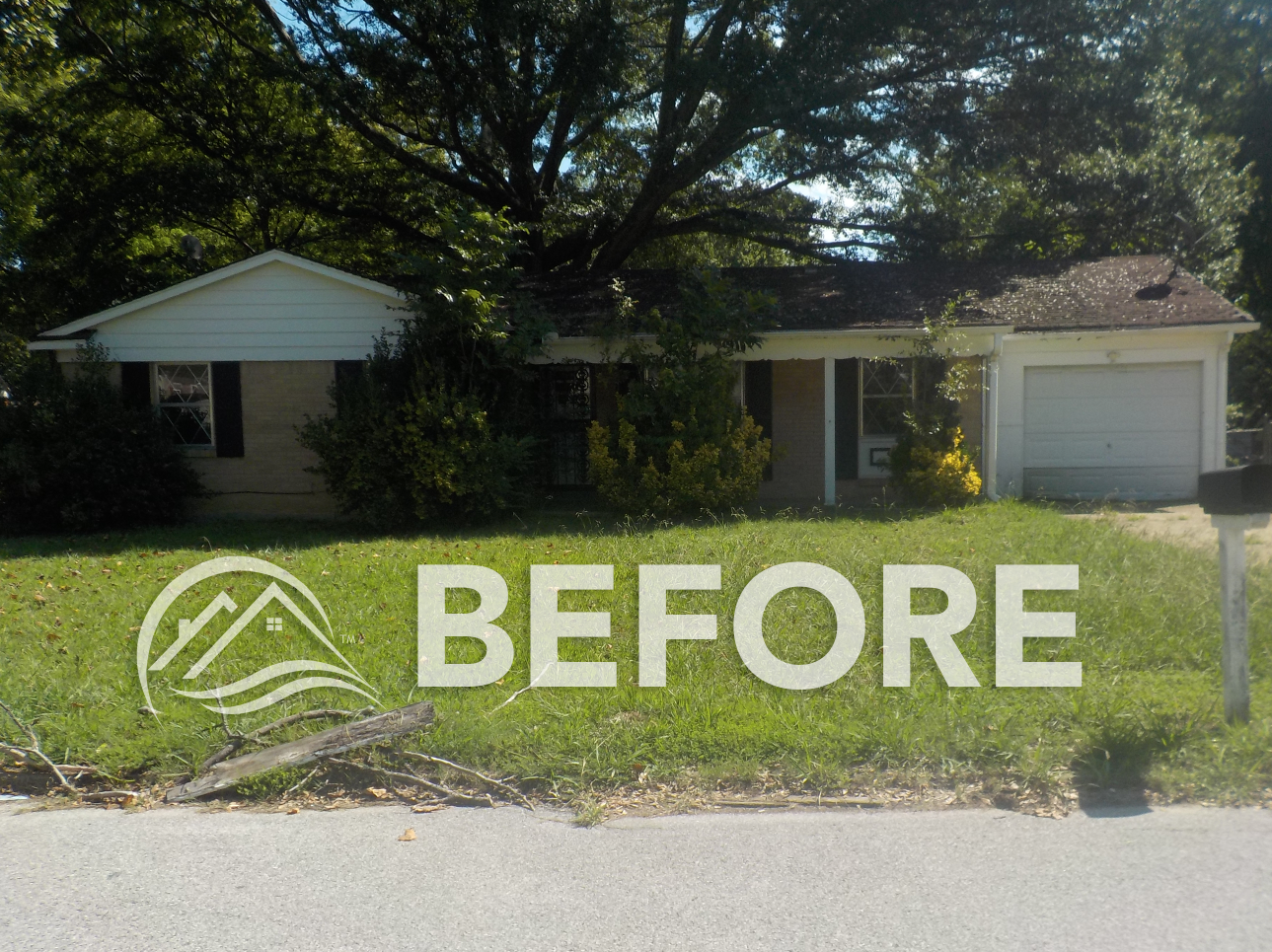 Investing in real estate can come with a steep learning curve. With all of the nuance, strategy, and law involved, it can be tricky to know what you should prioritize. One of the best tactics to familiarize yourself with early on is the 1031 Exchange—the biggest tax benefit you can take advantage of in real estate investment.
Investing in real estate can come with a steep learning curve. With all of the nuance, strategy, and law involved, it can be tricky to know what you should prioritize. One of the best tactics to familiarize yourself with early on is the 1031 Exchange—the biggest tax benefit you can take advantage of in real estate investment.
If you’re not familiar with the 1031 Exchange and its variations, this method allows investors to defer capital gains taxes on the sale of a property used for trade, business, or investment.
Through a 1031 Exchange, you essentially trade one investment property for another (or several), tax-deferred. However, there are plenty of requirements, regulations, and conditions that can make these “like-kind” exchanges intimidating, especially if you have never done one before.
WAIT! Read The Real Estate Investor’s No-Nonsense Guide to the 1031 Exchange
So what do you need to know? We sat down with Jodi Bugter, Division Manager for Asset Preservation, Inc., and Qualified Intermediary. Jodi offers her services and has counseled some of our clients regarding 1031 Exchanges.
We also spoke to our own Marq Cobb, one of our top portfolio advisors who has experience guiding our investors through the 1031 Exchange process.
With their insight, the benefits of the 1031 Exchange for turnkey real estate investors become that much more clear.
The Role of the Qualified Intermediary: Jodi Bugter
What are the primary benefits of performing a 1031 Exchange?
Tax deferral, increasing ROI on real estate, receiving more cash flow and acquiring much more investment real estate.
Many people understand the concept of funding an IRA or 401K because the investment grows at a faster and higher rate due to tax deferral and the compounded effect on investment returns over time.
Doing a 1031 exchange allows investors to defer all taxes on the sale of real estate, redeploying all of the gross equity on a tax-deferred basis into more and larger replacement properties which provide more cash flow and larger real estate holdings to appreciate and, ultimately, a much higher ROI versus selling and paying up to four levels of possible taxes.
What role does a qualified intermediary play in the 1031 Exchange?
The Qualified Intermediary (QI) is essential and is required so the investor never has access to the exchange proceeds. The investor can never have constructive receipt of funds and therefore prior to closing on the property being sold, the investor should contact a Qualified Intermediary and have the necessary exchange documents prepared and forwarded to the closing officer. The investor’s funds are wired from the sale closing directly to the Qualified Intermediary.
A reputable Qualified Intermediary provides the methods of securing the exchange funds and detailed guidance on the 1031 Exchange rules and time deadlines. In the most common exchange format, the delayed exchange, the investor has 45 calendar days to identify a replacement property and another 135 days (for 180 days total) to close on the property they identified. A Qualified Intermediary provides lots of critical information about all aspects of the exchange process.
As a qualified intermediary, why is the role you play so pivotal for a successful 1031 Exchange?
Section 1031 of the tax code is much, much more detailed than many realize. If the investor’s goal is to defer their taxes, the Qualified Intermediary is working with them on many levels to make sure everything is done correctly.
Many people are unaware of the complexity of the 1031 exchange process and issues such as how the investor holds title, what they are purchasing and making sure they understand they must reinvest all net equity and have the same or greater debt on the replacement property purchase for full tax deferral are important issues to address.
Why is selecting the right qualified intermediary so critical?
I always ask people a question when it comes to selecting their Qualified Intermediary; “Who regulates Qualified Intermediaries?” Many people will then respond, “The FDIC, SEC?
I then tell them, “No one at the Federal Level.” I would say understanding that no one regulates the Qualified Intermediary is the most important issue to understand when selecting a Qualified Intermediary.
Additionally, many people will tell me they have worked with or chosen their attorney. It is important to understand that their CPA, attorney, or closer could be a “disqualified person,” if they have done any work with them the previous two years from the day of their closing.
Asset Preservation, Inc. is owned by a large, publicly traded company and we choose top tier banks to hold exchange funds. We have done over 180,0000 exchanges since 1990 and can provide clients with a “Letter of Assurance” backed by our parent company.
What common hurdles must be overcome in a 1031 Exchange?
The most common hurdles are the title and ownership of property. If the property being exchanged is held in a regarded entity (LLC or Partnership with a separate Tax ID), the investor must purchase the next property in the exact same way (i.e. In the name of the entity).
Often, one or more partners want to go their own way and cash out and pay taxes owed. Since a partnership interest cannot be exchanged, the investors will have to look at options in advance to drop out of the partnership so an exchange can be accomplished by those former partners that want tax deferral.
Other hurdles come into play when an investor wants to purchase a property from a family member or purchase a vacation home. The investor can potentially do both but there are specific guidelines and rules they must follow.
If you were to give advice to anyone looking to perform a 1031 Exchange, what would you tell them?
If you are looking to do a 1031 exchange, make sure you set it up prior to closing on the property you are selling. The worst type of call I receive is when an investor calls me and says that they want to do a 1031 exchange and then I reply, “when are you closing.” The investor says, “I closed yesterday.” I then explain to them that it is too late to set up a 1031 exchange.
I also advise investors to be looking for the property they might like to purchase as soon as they receive a contract on the property being sold since inventory that is priced right often sells quickly in today’s market. Meeting the 45-day identification requirement is straightforward but is much easier with advance planning.
The 1031 Exchange for Turnkey Investors: Marq Cobb
Why is the 1031 Exchange beneficial for turnkey investors?
Many of our clients live in markets where the cost of real estate (including that which they own) is tremendously higher than the price points of the markets in which we invest, and so executing a 1031 Exchange and selling off a property they currently own allows them to acquire multiple units with our team which provides them diversification across multiple units (and likely across multiple of our markets as well).
Also, the rent to price ratio in our markets is almost always higher than the local market where our clients live, so they are able to significantly increase their total return (monthly rental income) when they invest with us.
What does a typical 1031 Exchange look like?
We see a wide range of different 1031 Exchange packages, everything from a client selling one property and then acquiring two or three properties to last year when I helped a client who sold a commercial building to acquire 31 properties with us all in 1 exchange. Larger exchange packages do not scare us at all, and we have never failed to provide the number of properties needed for any client to fully maximize and execute their 1031 exchange.
What are common hurdles you help investors through regarding 1031 Exchanges?
We eliminate the biggest hurdle of simply finding and identifying the correct number of properties needed, within the time frame, to efficiently execute a 1031. We acquire anywhere from 80-100 SFR properties every month, so there is no shortage of options for the investor.
What do you think is the most critical thing to understand about 1031 Exchanges?
A lot of anxiety related to identifying properties (within the 45-day time period) can be reduced by time spent on planning the strategy ahead of time. Depending on the size and complexity of the 1031 exchange, I almost always tell my clients that my goal is to help them identify the correct properties during the first half of the 45-day identification period.
This allows us time to make adjustments if needed within the time period and saves the client from feeling pressure to identify properties they might not actually want but include in their 1031 because of the pressure they feel if they wait until the very end of the identification period.
If an investor with Memphis Invest were interested in a 1031 Exchange, where would they start?
Feel free to contact me (or our team) directly. The information they need to have handy would be the sales price (or likely sales price) of the property they are selling or plan to sell and the current amount of debt on the property. Also, how do they hold title in the property that they wish to sell?
If debt needs to be recreated during the 1031 exchange, then we need to make sure that the client will be able to get financing in the name or entity that holds title on the subject property that will be sold.
The Bottom Line for Turnkey Investors
One of the biggest challenges facing investors today is the immense barrier to entry in regards to tax law—as with the 1031 Exchange, the process can be complicated and confusing as there are many strict rules and regulations. With the power of skilled experts who know how to identify suitable properties for your exchange, however, you can enjoy increased ROI, growth in equity and cash flow, and greater portfolio diversification.
The 1031 Exchange doesn’t have to be intimidating. Chart your course with the experts.












